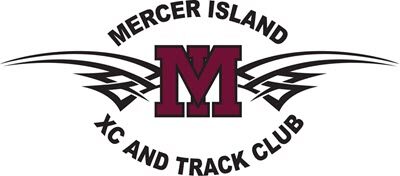
Download Heidi Strickler’s “Nail Your Nutrition for Sport & For Life As a Student Athlete” presentation.
As a student-athlete, preparing for a race involves more than just training and strategy. One of the most important factors in achieving peak performance is what you eat before the meet. Proper nutrition provides the energy you need to run at your best, while hydration helps keep you focused and ready. In this guide, we’ll break down what to eat and when, so you can fuel your body for race day success.
3-4 Hours Before the Meet: The Foundation of Your Fuel
The meal you eat several hours before the race is key to setting up your body for success. About 3-4 hours before the event, aim for a balanced meal that includes complex carbohydrates, lean protein, and healthy fats. Complex carbs, like whole-grain pasta, brown rice, or oats, provide a slow-release form of energy that will keep you going throughout the race. Pair these with lean proteins like chicken, turkey, or tofu, which support muscle recovery and help maintain your strength. Healthy fats such as avocado or nuts can be beneficial in moderation, but avoid overdoing them, as fats take longer to digest. Hydration is crucial at this stage too—drink water or a sports drink to ensure you’re fully hydrated as you approach race time.
1-2 Hours Before the Meet: Quick, Easy Energy
As race time approaches, you want to start focusing on foods that provide quick, digestible energy. One to two hours before the meet, opt for lighter carbohydrates, such as a banana, toast with jam, or a bagel. These are easy to digest and provide your body with the sugar it needs for quick energy. Avoid foods high in fat or fiber during this period, as they can cause discomfort or sluggishness during the race. Continue sipping water, but don’t overhydrate, as too much liquid can leave you feeling bloated.
30-60 Minutes Before the Meet: Quick Energy Boost
In the final 30-60 minutes before the race, it’s all about giving your body a quick energy boost. Simple carbohydrates are your best friend during this time, as they digest quickly and provide a rapid release of energy. A sports drink, a piece of fruit (like an apple or banana), or a small energy bar are all great options. Avoid heavy meals or protein-heavy foods, as these take longer to digest and can leave you feeling sluggish or uncomfortable during the race. This is the time to keep things light and easy on your stomach.
Hydration Throughout the Day
While what you eat before the meet is essential, staying hydrated throughout the day is equally important. Dehydration can hinder performance, leading to fatigue or cramping. Make sure you’re drinking water consistently leading up to the race, not just right before. If you’re running in warmer conditions, sports drinks can help replace electrolytes and maintain your energy levels. However, be mindful of not overdoing it, as excessive hydration right before the race can lead to discomfort.
Avoid New Foods and Listen to Your Body
Race day is not the time to experiment with new foods or try something you haven’t had before. Stick with foods that you know your body handles well, as trying something unfamiliar may lead to stomach issues that could affect your performance. Over time, pay attention to how your body reacts to different meals before races, and fine-tune your nutrition plan based on what works best for you. Every athlete’s needs are different, so it’s essential to find a routine that helps you feel energized and prepared.
What you eat before a race can make a significant difference in your performance. By fueling up properly—starting with a balanced meal several hours before the race and focusing on easily digestible carbs closer to race time—you’ll give yourself the best chance at success. Stay hydrated throughout the day, avoid trying new foods on race day, and listen to your body to find the pre-race nutrition strategy that works for you. With the right fuel, you’ll be ready to tackle the track with confidence and energy.
